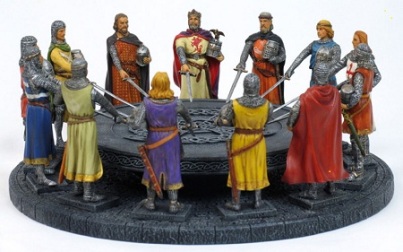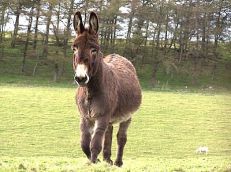Ten Horse-Power Donkeys and “Plain Britons”: Thoughts on Brexit and Nationhood
The 23rd June 2016 represents a pivotal historic moment. The United Kingdom have voted to leave the European Union and whether you voted for Brexit or Bremain that decision will define us globally, socially, economically—even academically— in the coming months and years. “Divorcing” from our largest trading partner and long-time political ally will have far-reaching consequences, many of which are currently unknown. Some voted for the Leave campaign in protest against—what they see as—the undemocratic and neoliberal politics of the EU, while others voted on issues of immigration and border control, however both camps were underpinned by a sense of national identity: a desire for “Britishness”, synonymous with a desire for political independence and control.
Amid calls to “make Britain Great again” and criticism of “little Englanders”, I can’t help but turn to the Victorians. Whether we celebrate their industrial and scientific progressiveness or lament their exploitative and imperial philosophies, we can all recognise their visibility in the cultural imagination, and appreciate the significance of their own attempts to negotiate what it meant to be British in an increasingly global world – a recent preoccupation of those interested in #globalvictorians. Elsewhere on this blog I have written about the significance of the Victorians and (re)presenting them in contemporary culture, of international competition and rivalry in nineteenth-century science, and of the importance of collaboration, however today I want to talk about Nationhood.
The latter half of the nineteenth century saw the increasing specialisation of disciplinary science and the birth of new sub-disciplines concerned with situating humans in the natural world: evolutionary biology, psychiatry, neurology, genetics, bacteriology, immunology, and haematology, represent just a few of these. My research focus (and the subject of my PhD) provides another example of this specialisation. Parasitology—the study of parasites and parasitic disease—took on new significance in the late nineteenth century in light of Britain’s imperial expansion and desire to colonise more of the world. One obstacle to this imperial project was the imposition of tropical parasitic disease, which was increasingly being registered in the bodies of British missionaries, soldiers, and traders returning from the colonies.

[Image source: daterelease.net]
In order to legitimise the claims of their newly emergent profession on government funding, parasitologists consciously branded their discipline as a prerogative of the nation, their science as British imperial science. But more than this, conscious of the need to garner public support, they further bolstered their professional identities using British myths of nationhood. Using metaphors and images borrowed from Greek and Roman mythology, and the tales of King Arthur’s knights, parasitologists framed their profession within the discourses of heroic chivalry. You can read more about this “branding” project in my article in the Journal of Literature and Science, “(Re)Constructing the Knights of Science: Parasitologists and their Literary Imaginations“. In 1905, when Nobel Prize-winning parasitologist Ronald Ross eulogised fellow parasitologist Joseph Dutton in the British Medical Journal, he wrote:
He was a true Knight of Science […] the Galahad of that group of enthusiatic young men who, with so little recompense for themselves have pushed forward the cause of tropical medical science at such a rapid rate.1
Taking part in this same discourse, and extending the mythology of fin de siecle parasitologists, newspaper articles reporting on Ross’s death in the 1930s still branded him as a knight and his work as akin to the heroic adventurers of British literature.
His fight against the malaria-carrying mosquito has been truly described as more romantic than any story of knight against huge dragon […] this kindly knight was to show himself possessed of patience, imagination, determined and highly-developed reasoning power, and above all faith and courage.2
Beyond their public reception, this understanding of parasitology as a “British” science, fused with national identity, had both edifying and pernicious ideological consequences. On the one hand, it encouraged scientists to see their work as an extension of their identity, and to understand that identity as world-building and selfless. However, it also placed emphasis on maintaining this heroic narrative by any means necessary. When Ross was carrying out the work that would win him Britain’s first nobel prize, he and his colleagues had to negotiate between their desire to benefit humanity and their desire to gain credit and recognition. Tropical medicine giant Patrick Manson, when advising Ross, wrote:
It is evident the Italians are now on the scent. I do hope you will run into the quarry before them. Bignami is a clever little fellow and ambitious. Laveran is working up the Frenchmen. I do not hear that the Germans are moving, but they will and so will the Russians. Cut in first.3
His preoccupation is here clearly with priority, rather than a solution to the problem—in this case the transmission route of malaria, a tropical disease that was responsible, directly or indirectly, for thousands of death a day in India alone. Upon his success, a friend wrote to congratulate him:
You have done the trick and I congratulate you heartily and I congratulate ourselves for do you not belong to us? And you are no Italian, French, or German, but a plain Briton!4
 Despite this divisive rhetoric and petty name-calling—like when Dr. T. Edmundston Charles called Italian researcher Giovanni Battista Grassi a “ten horse-power donkey”5—the progression of tropical medical science was a global affair, which relied on global collaboration.
Despite this divisive rhetoric and petty name-calling—like when Dr. T. Edmundston Charles called Italian researcher Giovanni Battista Grassi a “ten horse-power donkey”5—the progression of tropical medical science was a global affair, which relied on global collaboration.
This is exemplified in Imperial administrator William McGregor’s conception of the role that parasitologists played in facilitating Empire:
“It appears to me to be more or less like this: Manson6 was the surveyor, Laveran7 made the road, Ross8 built the bridges and laid the rails, and Grassi,9 Bastianelli,10 Bignami, and Celli provided the rolling stock.11”
As the nineteenth century gave way into the twentieth, this global knowledge base played a greater role in medical paradigm shifts, including interventions in public heath. The competition between European powers trying to create world empires ultimately led to the blighting of the twentieth century with two world wars. The European Union was set up to prevent a third, and to prevent the breaching of human rights that would inevitably accompany it. Whatever you voted in the referendum, with so many of our medical research initiatives, academic funding pots, student study abroad programmes, and maternity/paternity pay structures bound up with or facilitated by our EU membership, it is imperative that we don’t lose sight of the importance of collaborative thinking. We don’t know what the future will hold, or what the consequences of the Brexit will be, but we should look on this as an opportunity to reconsider what our nationality means to us. What does it mean to be British in the twenty-first century? With the venom and ill-will generated by the referendum on both sides, let’s take this opportunity to re-brand our national identity and reclaim “British” as a moniker that celebrates collaboration, cultural exchange, and inclusivity.
NB. I don’t have the space here to address the troubling colonial and postcolonial narratives that pervade the politics of parasitology, but I recognise this as an aspect that hugely problematises the nationhood project. I ask you to forgive me the restrictive example, and think more broadly of the power of language and the utility of both “looking outwards” and working together, now exemplified in the global research initiatives that form part of so much of the academic output of UK HE institutions.
1 Ronald Ross, ‘Joseph Everett Dutton, .M.B., Ch. B.Vict, D.P.H.’ British Medical Journal 1(1905)2314 pp.1020-1021.
2 ‘Sir Ronald Ross’ Brisbane Courier, Tuesday 20 September 1932, p.10.
3 Patrick Manson, ‘Letter 48 02/018’ The Beast in the Mosquito, pp.124-25. (p.125).
4 London, London School of Hygiene and Tropical Medicine. Ross Collection. Ross/48/36. Letter to Ross 31st September 1898.
5 London, London School of Hygiene and Tropical Medicine. Ross Collection. Ross/52/12/03 Letter to Ross from T. Edmundson Charles, 1899.
6 Sir Patrick Manson discovered the mosquito vector for the parasitic disease Elephantiasis or Visceral Leishmaniasis. (Scottish-born)
7 Charles Louis Alphonse Laveran discovered the protozoan parasite responsible for Malaria. (French-born)
8 Sir Ronald Ross traced the life cycle of the Plasmodium parasite into the stomach of the mosquito and proved that it acted as a vector for Malaria. (British/Scottish, born in India)
9 Giovanni Battista Grassi demonstrated conclusively the vector transmission of malaria in humans, and established that only the female anopheles mosquito can transmit the disease. (Italian)
10 Giuseppe Bastianelli, Amico Bignami, and Angelo Celli studied the clinical symptoms of Plasmodium falciparum and recognised several stages in the development of malaria parasite within the blood. (Italians)
11 William MacGregor, ‘An Address on Some Problems of Tropical Medicine’ British Medical Journal. 2(1900)2075 pp.977-984. (p.980).
